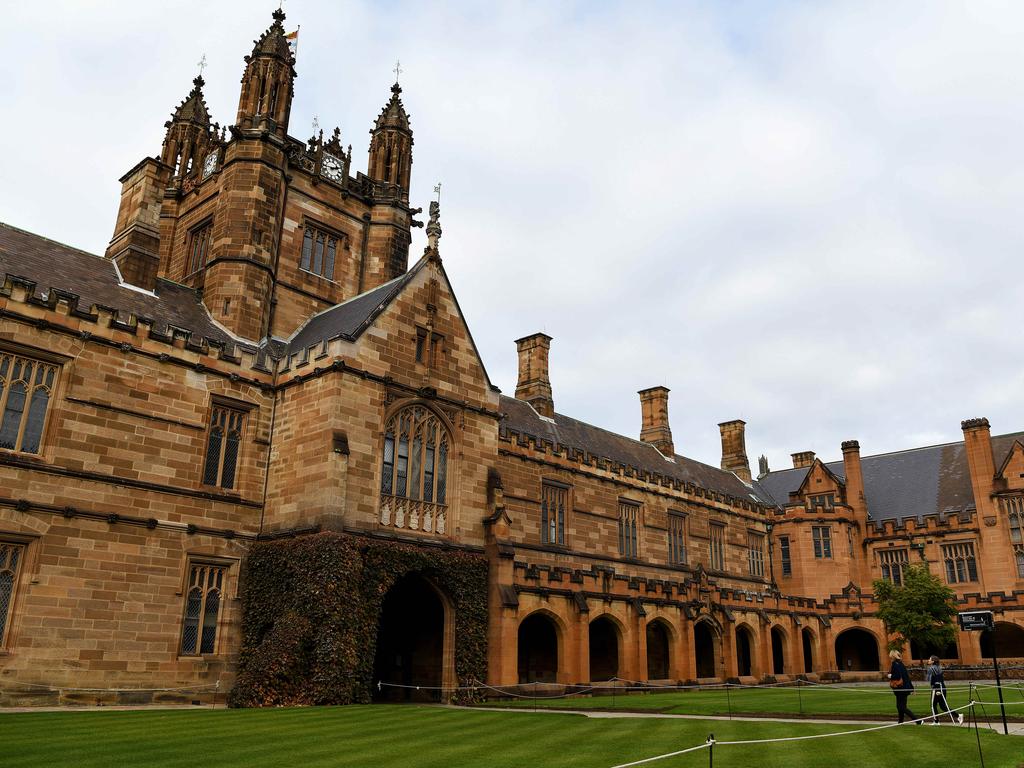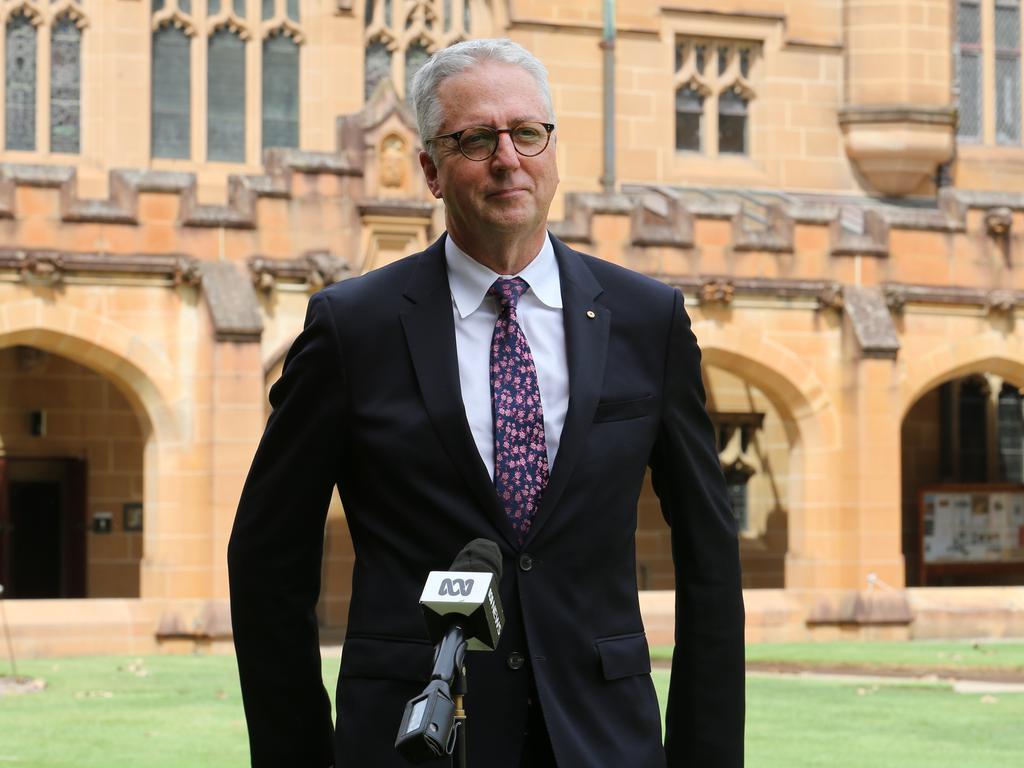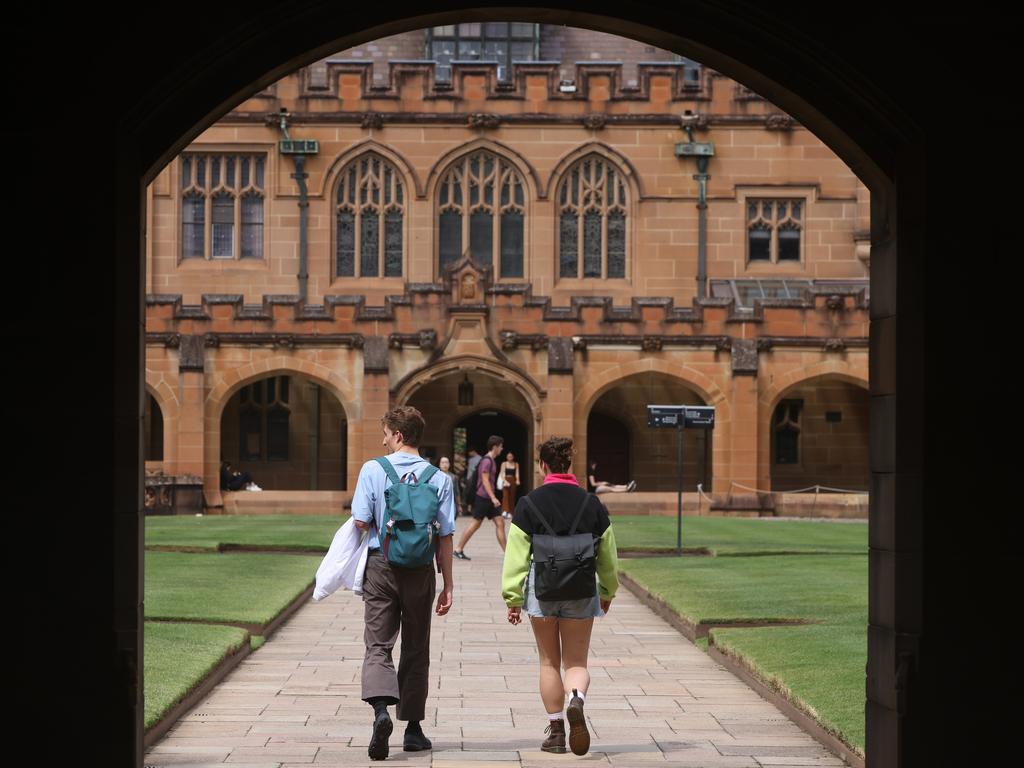Sexual assault, harassment reports at Sydney University more than doubled last year
Nearly 250 staff and students from the University of Sydney were victims of sexual assault or harassment last year, according to new statistics.
Nearly 250 staff and students from the University of Sydney were victims of sexual assault or harassment last year, according to new statistics – proof “there’s still a very long way to go before our campuses are safe”.
The second Annual Report on Sexual Misconduct, released on Tuesday, revealed reports had more than doubled since 2022, up from 121 to a total of 246.
Of those, the vast majority (87.8 per cent) were disclosures from complainants who did not want the university to investigate the incident or take specific action.
Half of the incidents, meanwhile, were categorised as “non-university related conduct”, defined as those which had “no connection” to the institution beyond it being reported by a student or staff member seeking support.
In a message to staff and students shared with news.com.au, vice-chancellor Mark Scott said the increase in reports “may reflect increased awareness of our reporting and support options”, as well as the return of all students to campus post-pandemic.

“In many ways our University is a microcosm of broader society and because of this we must be vigilant about working with our community, the sector and government – we cannot solve these societal challenges alone and have a responsibility to do everything we can to protect our people,” Professor Scott said, describing “any incident” of misconduct as “utterly unacceptable”.
“We have invested significantly over several years to improve our preventative measures, reporting options and support services and we’ve made a lot of progress but we know there is more work to do.
“Change will only happen if we continue to listen to our community, share our experiences with the sector, and develop and implement strategies to help eliminate this serious problem.
“We are committed to continuing targeted action to create a safe, inclusive and supportive environment and will continue to work with our community, governments and other universities to align consent campaigns and other initiatives to tackle sexual misconduct on university campuses.”
Australian universities have been under pressure to improve their handling of sexual misconduct in the years since the Australian Human Rights Commission’s landmark Change the Course report in 2017.
In response, all 39 Australian universities promised to be transparent about their handling of sexual harm on campus; as of April last year, however, the Australian Human Rights Institute found 29 of them either weren’t reporting in an accessible way, or at all.
The University of Sydney statistics, End Rape on Campus Australia founder and director, Sharna Bremner, said, “tell us that there’s still a very long way to go before our campuses are safe”.
“An increase in the number of people coming forward doesn’t necessarily mean an increase in the prevalence of sexual harm,” Ms Bremner told news.com.au.
“Still, it does tell us that more people feel comfortable telling someone what happened to them, and that’s a really good thing.”
What’s “concerning”, Ms Bremner said, is that only a minority wanted the university to get involved after they’d reported their incident.
“That tells us that students and staff don’t necessarily trust those processes, which aligns with what we hear from students all over the country – they know that their university’s investigation processes are harmful and often don’t have an outcome, so they’re not willing to engage further,” she said.

Last year, a Senate inquiry into sexual consent held a harsh light up to universities’ handling of complaints, with a report describing response times as “inadequate (and) in some cases, outright damaging and deeply troubling”.
The University of Sydney has taken a “zero tolerance” stance as part of its ongoing commitment to transparency and prevention of sexual misconduct on campus, as well as rolled out a string of awareness campaigns, prevention education workshops and tailored training sessions.
“The reality is that our universities actually have quite a lot of tolerance, which is why we’ve seen rates continue in this way,” Ms Bremner said.
“We’re still not seeing nearly enough investment in evidence-based prevention education programs and those who perpetrate sexual assault and harassment are still not facing any consequences for their behaviour – universities are continuing to show them that they can harm people and get away with it.”

There have been “pockets of good work to support victims” in recent years, Ms Bremner added, “but the level of support that you receive shouldn’t be a postcode lottery”.
“What university you attend shouldn’t determine how safe you are or how well supported you’ll be if something happens to you,” she said.
In February, Australia’s Education Ministers agreed to – and released – the Action Plan Addressing Gender-based Violence in Higher Education.
The “multi-pronged approach” featured seven actions, including establishing a National Student Ombudsman, requiring higher education providers to embed a whole-of-organisation approach to prevent and respond to gender-based violence, and introduce a National Higher Education Code to Prevent and Respond to Gender-based Violence.
“We support the principles and aspirations that underpin the Action Plan Addressing Gender-based Violence in Higher Education and the National Student Ombudsman proposal, and look forward to working with our stakeholders to make these initiatives work for the benefit of our students and the communities we serve,” Prof Scott said.
Ms Bremner said she’s “hopeful” the plan “will finally force universities to implement the changes that we need to see to ensure that nobody’s education is derailed because of sexual violence”.
Originally published as Sexual assault, harassment reports at Sydney University more than doubled last year





